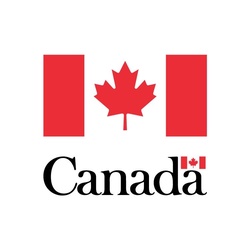
Open
Northern Scientific Training Program (NSTP)
Last Update: October 27, 2025
Canada
Supports northern research training for Canadian university students
Grant and Funding
At a glance
Funding available
Financing goals
Develop employee skills
Conduct research
Eligible Funding
- Maximum amount : 6,000 $
Timeline
- Unspecified
Eligible candidates
Eligible Industries
- Agriculture, forestry, fishing and hunting
- Professional, scientific and technical services
- Educational services
- Health care and social assistance
- Arts, entertainment and recreation
Location
- Canada
Legal structures
- Non-profit
- Public or Parapublic institution
Annual revenue
- All revenue ranges
Organisation size
- All organization sizes
Audience
- Rural or Northern Residents
- Canadians
- Youth (<40)
Non-profit candidates
Sector of operation
- Higher Education
- Research
- Environment
- International Activities
Target groups
- Indigenous peoples
- Rural / Remote communities
- Academia / students
Revenue structures
- All structures
Scope
- National
- International
Overview
The Northern Scientific Training Program (NSTP) provides supplementary funding of up to $6,000 per year to Canadian university and northern post-secondary students conducting thesis-based research in northern regions. The program aims to support advanced undergraduate and graduate students in gaining professional experience and training through eligible activities such as fieldwork, covering additional costs related to transportation, living expenses, and interpreter fees.
Activities funded
- Thesis-based research projects conducted by Canadian university or Northern post-secondary students in northern regions of Canada or eligible circumpolar countries.
- Multi-disciplinary research activities addressing issues relevant to the Canadian North.
- Projects involving scientific training and professional experience in northern environments for students at the undergraduate, master's, or doctoral level.
- Research initiatives that include meaningful engagement and collaboration with northern communities or authorities.
- Projects aimed at disseminating or reporting research findings to northern communities.
Examples of admissible projects:
$ 74,000
Install solar panels at community wellness center and upgrade lighting
$ 35,000
Launch pilot recycling initiative for retail shopping center tenants
$ 58,000
Develop new mobile booking app for local transportation cooperative
$ 87,500
Upgrade local bakery with zero-emission commercial ovens and displays
$ 39,000
Launch a community composting program in partnership with schools
$ 66,000
Purchase CNC machine for local woodworking social enterprise training
Eligibility
- The applicant must be a Canadian university or Northern post-secondary institution, or an officially recognized Northern Studies Committee within such an institution.
- The applicant institution must support students conducting thesis research in Northern regions or other eligible circumpolar countries.
- The institution must submit applications as a package through the Chairperson of its recognized Northern Studies Committee; individual applications are not accepted from students.
- Universities or Northern post-secondary institutions wishing to participate in the program for the first time must apply for recognition to the NSTP Secretariat.
- If the student's home institution does not have a recognized Northern Studies Committee, applications can be made through a participating institution.
Who is eligible?
- Canadian universities
- Northern post-secondary institutions
Who is not eligible
- Businesses or companies (including private sector organizations) are not eligible; the program is restricted to Canadian universities and Northern post-secondary institutions.
- Research institutes or centers applying for general operational, administrative, or faculty salary support are not eligible.
- Organizations intending to conduct research outside the defined NSTP geographic boundary (regions without permafrost and ground ice, or outside approved circumpolar areas) are not eligible.
- Entities conducting research in Russia or partnering with Russian organizations (due to Canadian government sanctions) are not eligible for the 2025-2026 fiscal year.
- Institutions seeking funding for field schools, practica, or courses rather than individual thesis-based student research projects are not eligible.
Eligible expenses
- Transportation costs directly related to northern research projects.
- Living expenses incurred during the fieldwork in northern regions.
- Freight or shipping costs for research supplies and equipment used in the field.
- Interpreter fees or fees for community experts/elders engaged in the research project.
Eligible geographic areas
- Regions of Canada where there is both permafrost and ground ice, as mapped in the 5th Edition of the National Atlas of Canada (see Permafrost map).
- Alaska (except for the "panhandle")
- All areas of Greenland (Denmark)
- Regions north of the southern limit of discontinuous permafrost in Finland, Norway, and Sweden
- Iceland (eligibility determined on a case-by-case basis)
Selection criteria
- Compliance of the application and reports with NSTP guidelines.
- Completeness and clarity of information submitted.
- Evaluation of past performance and future research plans.
- Relevance of the research project to current northern issues.
- Experience and scientific knowledge/training gained by the student.
- Development of northern studies and northern specialists at the university or post-secondary institution.
- Overall quality of the submission package from the university or institution.
- Supervisor’s recommendation.
How to apply
- Step 1: Obtain Program Material
- At the start of each academic year, secure the NSTP application materials from your university or Northern post-secondary institution’s Northern Studies Committee (NSC).
- Review reference documents and guidelines available online.
- Step 2: Complete Student Application and Research Report Forms
- Access and fill out the required forms online via the NSTP Online Forms system.
- Provide comprehensive information on your project, including research objectives, methodology, timeline in the North, requested amount (up to $6,000), and other funding sources.
- Address ethical principles, community engagement, and necessary permits/licences.
- Prepare a unique project description if you are part of a team, specifying your individual contribution.
- Step 3: Submit Application to Northern Studies Committee
- Submit your completed application forms to your university or Northern post-secondary institution’s Northern Studies Committee by the internal deadline (typically November 10th).
- Ensure all required sections are complete and necessary supporting documentation is provided.
- Step 4: NSC Compiles and Reviews Applications
- Your Northern Studies Committee reviews all applications for completeness, eligibility, and supervisor recommendations.
- The Committee compiles student applications into a single package along with institutional documents (e.g., NSC Information Sheet, nomination forms for awards).
- Step 5: Institutional Submission to NSTP Secretariat
- The NSC Chairperson uploads the completed and signed application package (including required institution information sheets and award nominations) to the NSTP system.
- Submit the full institutional package to the NSTP Secretariat by December 1st (or the next business day if it falls on a weekend or public holiday).
- Step 6: Application Review by NSTP Management Committee
- The NSTP Secretariat reviews received packages for completeness.
- The NSTP Management Committee evaluates eligible submissions and allocates funding at the institutional level (not per student).
- Step 7: Notification and Disbursement
- Following the allocation meeting (typically in February), the NSTP Secretariat notifies each NSC of results and the funding amount granted.
- Funds are transferred to universities or institutions for distribution to students.
Additional information
- Each student is required to provide a detailed summary of their research progress and preliminary results, if available, in their final report.
- Students must acknowledge the Program's support in all publications, presentations, or other outputs resulting from NSTP-funded research.
- Incomplete or duplicate applications may result in the rejection of funding requests.
- Institutions are responsible for distributing allocated funds to participating students and maintaining contact with students until all research outputs are reported.
Contacts
nstp-pfsn@polar-polaire.gc.ca
613-222-9537
Canada
Apply to this program
Frequently Asked Questions about the Northern Scientific Training Program (NSTP) Program
Here are answers to the most common questions about the Northern Scientific Training Program (NSTP). This section explains what the program is, how much funding is available, eligibility requirements, application deadlines, and other important details to help you determine if this grant is right for your business.
What is the Northern Scientific Training Program (NSTP)?
How much funding can be received?
What expenses are eligible under Northern Scientific Training Program (NSTP)?
Who can I contact for more information about the Northern Scientific Training Program (NSTP)?
Where is the Northern Scientific Training Program (NSTP) available?
Is the Northern Scientific Training Program (NSTP) a grant, loan, or tax credit?
Who are the financial supporters of the Northern Scientific Training Program (NSTP)?
Apply to this program
More programs like this

Grant and FundingClosed
Industrial Research Assistance Program (IRAP) – AI Assist
National Research Council Canada (NRC)Supports Canadian SMEs in adopting and integrating advanced AI solutions

Wage Subsidies And InternsOpen
Industrial Research Assistance Program (IRAP) — Youth Employment Program (YEP)
National Research Council Canada (NRC)Money to hire a student

Researchers And FacilitiesPartnering and CollaborationWage Subsidies And InternsOpen
Mitacs Accelerate
MitacsConnect organizations with academia for research and innovation collaboration

Grant and FundingClosed
ISED — Artificial intelligence (AI)
Innovation, Science and Economic Development Canada (ISED)Supports testing innovative AI prototypes for Canadian government needs

Grant and FundingOpen
Global Innovation Clusters
Innovation CanadaFinancial assistance to work in collaboration on innovation projects
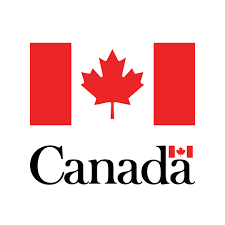
Grant and FundingOpen
IP for Business
Canadian Intellectual Property Office (CIPO)Intellectual property training, tools and expertise
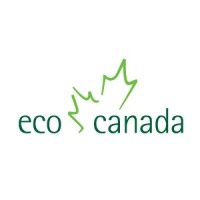
Wage Subsidies And InternsOpen
ECO Canada — Student Work Placement Program
ECO CanadaMoney to hire students for an environmental co-op
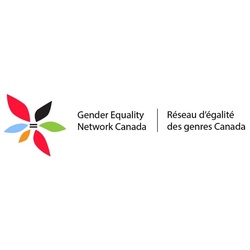
Partnering and CollaborationGrant and Fundingarchived
Equality for Sex, Sexual Orientation, Gender Identity and Expression Program
Women and Gender Equality Canada (WAGE)Supports equality initiatives for sex, sexual orientation, and gender identity
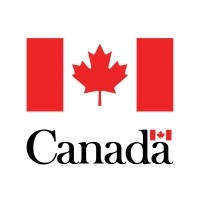
Grant and FundingClosed
Crime Prevention Action Fund (CPAF)
Public Safety Canada (PSC)Supports evidence-based crime prevention initiatives for at-risk communities
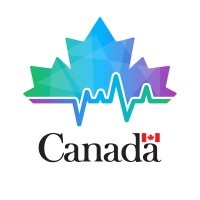
Grant and FundingClosed
Substance Use and Addictions Program (SUAP)
Health CanadaSupports innovative projects addressing substance use prevention and treatment
Sign up to our platform to access the Northern Scientific Training Program (NSTP) information sheet for free
Get access to 4,000+ programs, practical guides, personalized alerts, and an AI assistant to support your grant applications.